by Thayer Long
 The National Manufactured Housing Construction and Safety Standards Act of 1974 and subsequent changes found in the Manufactured Housing Improvement Act of 2000 laid the foundation to bring manufactured housing into the mainstream housing market. Over 35 years has passed, and great strides have been made in fulfilling this destiny. Over the past two decades we have represented over 20% of all new single family homes built in this country. This is a significant achievement, even given the fact that the last decade has seen some dismal numbers for this industry. But even the biggest industry supporters agree that the manufactured housing industry has yet to realize its tremendous potential. When will manufactured housing be considered mainstream housing?
The National Manufactured Housing Construction and Safety Standards Act of 1974 and subsequent changes found in the Manufactured Housing Improvement Act of 2000 laid the foundation to bring manufactured housing into the mainstream housing market. Over 35 years has passed, and great strides have been made in fulfilling this destiny. Over the past two decades we have represented over 20% of all new single family homes built in this country. This is a significant achievement, even given the fact that the last decade has seen some dismal numbers for this industry. But even the biggest industry supporters agree that the manufactured housing industry has yet to realize its tremendous potential. When will manufactured housing be considered mainstream housing?
That day will come when the industry fully embraces the concept that we belong in the mainstream housing arena.
America needs manufactured housing to be mainstream housing. We build high quality homes at a price most can afford. This concept is nothing new. I think we all see the benefit of having manufactured housing considered as an equal in the housing world. But the effort to get there has been the real challenge. We need to think outside of our traditional core set of issues. We need to acknowledge that the mainstream housing world is bigger than anything our regulators at HUD throw at us. We need to throw out some of the rules we used to play by and adopt some new ones.
First we need to start thinking of ourselves as mainstream housing. In the past, we have traditionally thought of ourselves as a niche in the overall housing market. If an issue didn’t specifically mention manufactured housing or there wasn’t a direct connection to our business, we chose to ignore it. Frankly, this way of thinking worked in the past. But those days are quickly coming to an end. The housing market is evolving, the consumer is changing. If we want to expand our presence and increase our business, and above all if we want the parity in the housing market we all desperately seek – we need to think broader in scope. If we want to be taken seriously, then we need to be prepared to think mainstream.
I know there are some that like the niche that we operate in and think the market and conditions need to change to us, instead of us to them. Some are afraid of what being part of the mainstream will mean, that we will lose our identity as affordable housing. As long as we can provide value to our customer, the demand for our homes will be there. But if we cut ourselves off from the rest of the housing market, we will be marginalized.
Indeed, in many ways we are being pushed into the “mainstream” market whether we like it or not. MHI, for instance, has over two dozen issues that we consider priorities for the industry because of the way they will impact your business. Only a handful of them could be considered “manufactured housing only” issues. In reality, we are touched by a large set of regulations, including things like the SAFE Act, Truth in Lending, and Fair Housing laws. This has caused angst for many, yet these laws, and many others, are found in the rest of the housing world. Please don’t misread; I’m not calling for additional regulation by any means. But I am pointing out that if we want a “level playing field,” if we want the same access to capital that the site-built world has, if we want to be treated fairly, it will require us to understand a different set of rules and adhere to laws and regulations that we are unfamiliar with.
Second, we need to act like mainstream housing. MHI’s Three Point Plan to industry success includes 1) improving financing, 2) aggressively updating the HUD-Code, and 3) protecting preemption. All three points are geared to both moving the industry ahead in the mainstream and ensuring that our homes remain affordable to those who need it.
In the area of financing, all lender practices in the housing world are under increased scrutiny by the government and investors for safety, soundness and transparency to consumers. We need to be part of this debate, to show that we are willing to, or in some cases already have, put in place the same principles other market participants share. Without it, our ability to access capital on the same terms as the rest of the housing market will be limited. Second, by promoting updates to the HUD-code on a regular basis, we ensure our homes are designed and built using new, efficient and innovative construction techniques, and are built using codes and standards that are relevant in today’s building environment. We cannot build to codes adopted years ago and still expect equal status from the rest of the housing world. Third, by following points one and two, we will protect the preemptive status of manufactured housing, the most potent advantage our industry enjoys and which is the single largest contributing factor to our affordability. Thus, by thinking and behaving mainstream, we will ensure our viability for years to come.
The path to success and prosperity will be found when manufactured housing is no longer considered a stigma. What is required to make that leap can appear very frightening, which is why as an industry we have spent so much time using the same arguments and expecting different results. No amount of arm twisting from HUD or legal wrangling will change that perception. That change will happen only when, as an industry in a unified voice, we make the conscious effort to move manufactured housing into the mainstream housing arena. ##
Thayer Long is Executive Vice President of MHI, the preeminent national trade association for manufactured and modular housing industries, representing all segments of the industries before Congress and the Federal government. From its Washington, D.C. area headquarters, MHI actively works to promote fair laws and regulation for all MHI members and the industry. He can be contacted directly at (703) 558-0678. For more information on MHI, visit www.manufacturedhousing.org


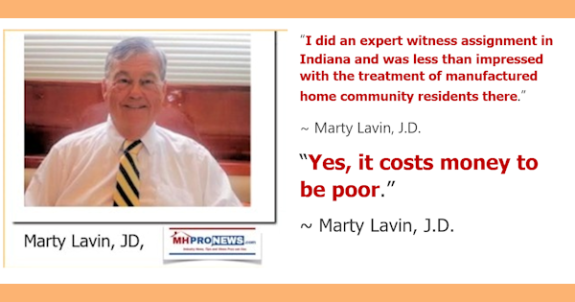
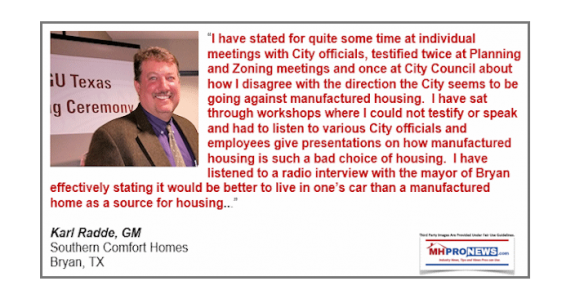
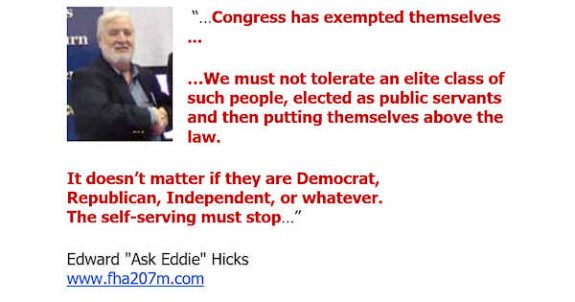
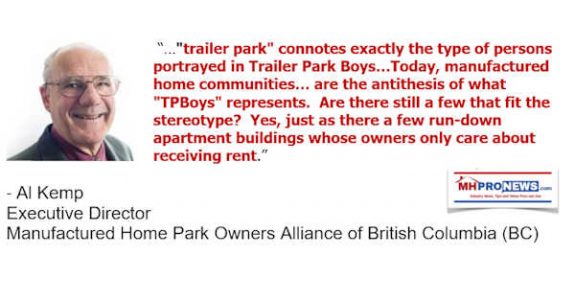

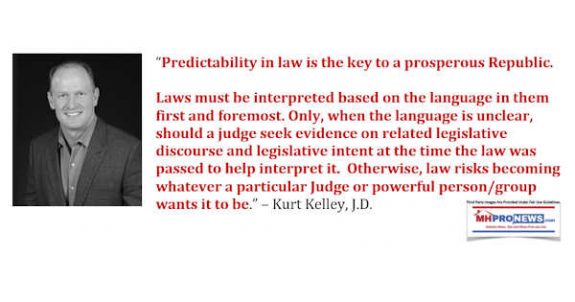
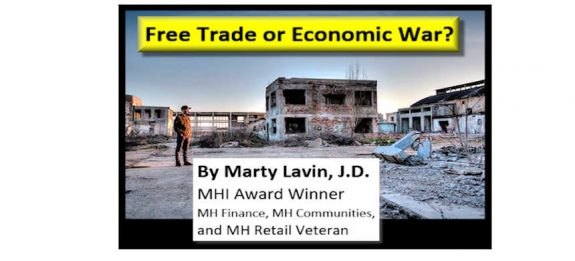
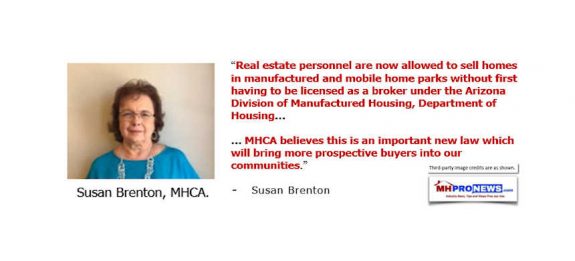
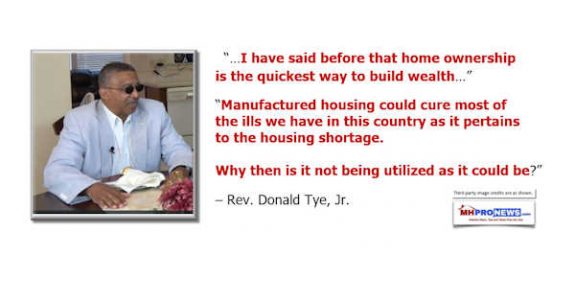
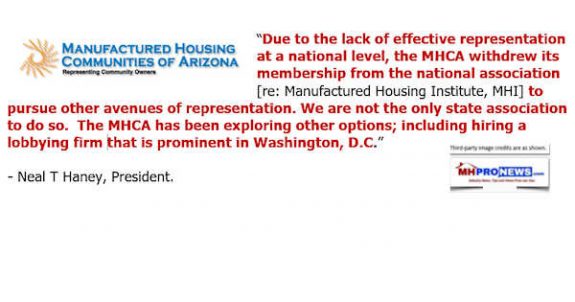
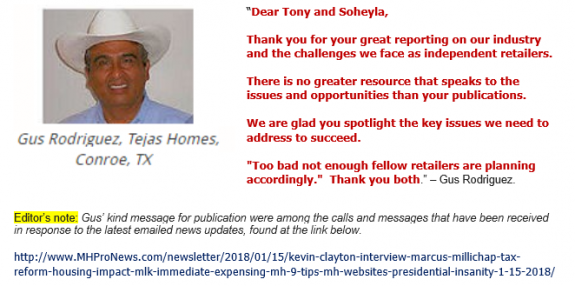
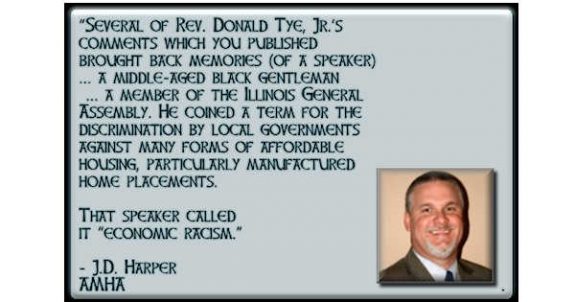
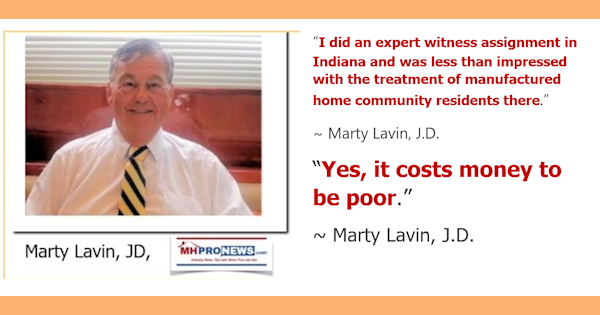
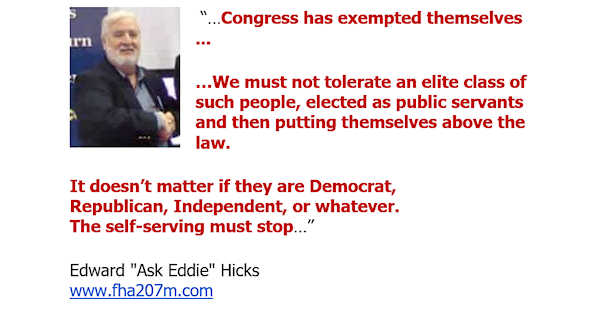
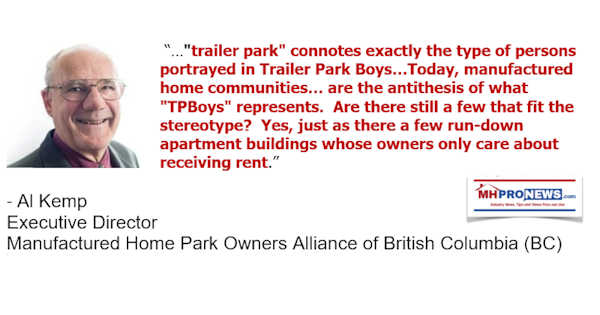
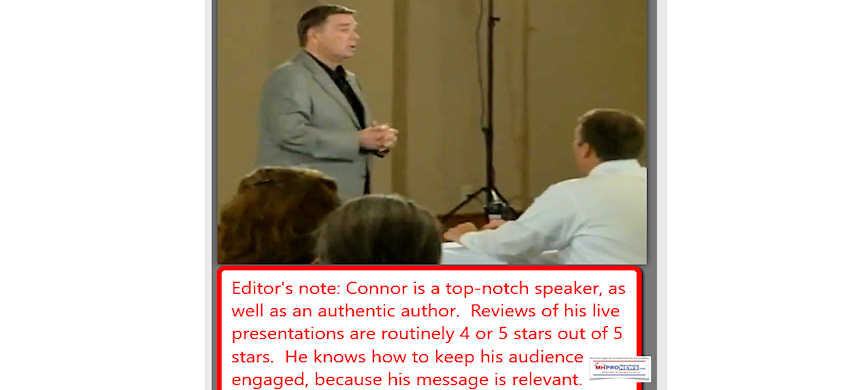
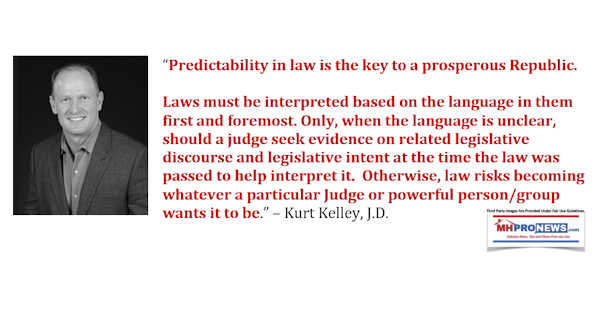
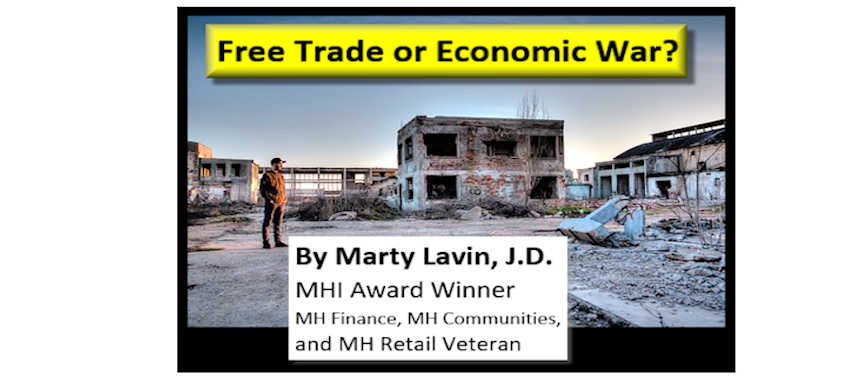
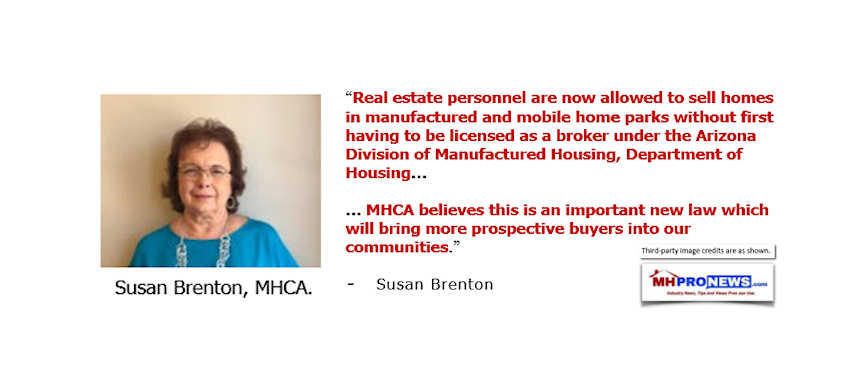
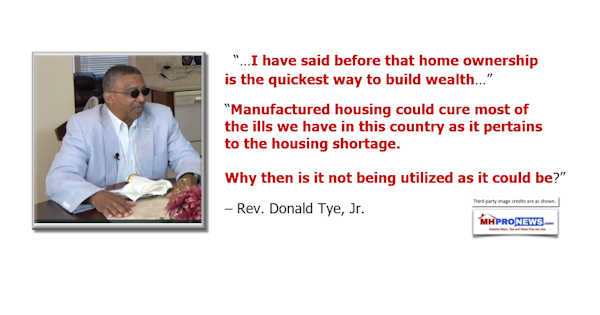
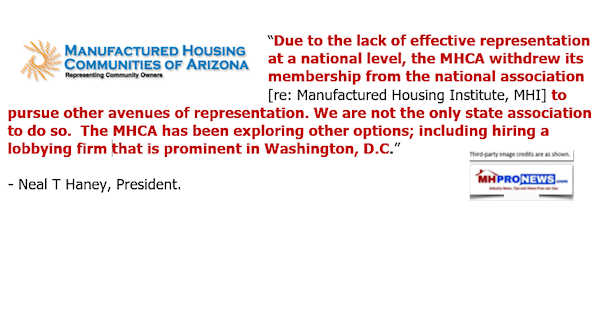
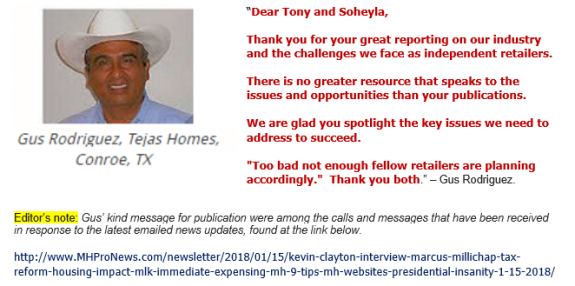
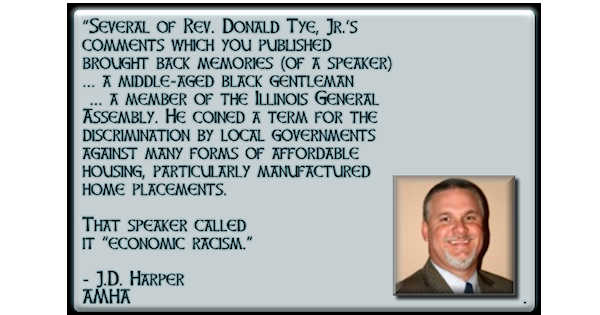
Karl Radde – TMHA, MHI, Southern Comfort Homes – Addressing Bryan City Leaders, Letter on Proposed Manufactured Home Ban
To All Concerned [Bryan City Officials, Others]: As the retail location referenced by Mr. Inderman, I would like to take a moment to address the …